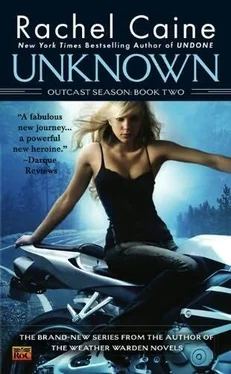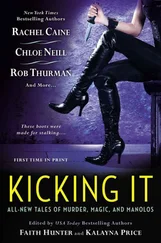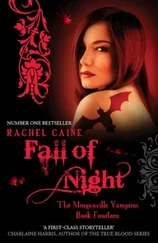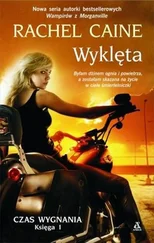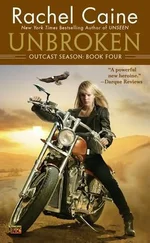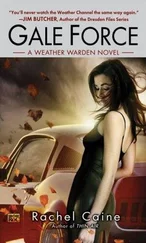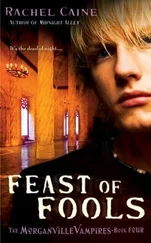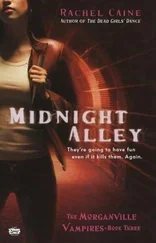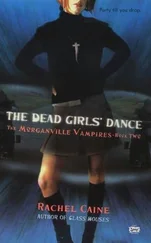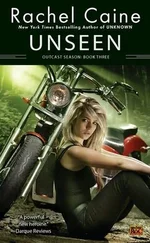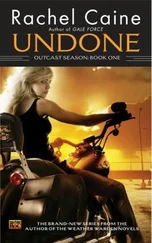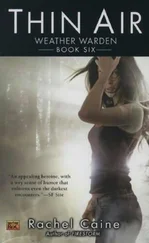A motorcycle roared up out of the ditch. The leader of the bikers, leaving behind his fallen comrades, opened the throttles and blazed past me in a blur of metal and leather, not even pausing to kill me, although he no doubt dearly wished to. I wouldn’t have blamed him if he’d made the attempt.
He had found another undamaged bike. The one I had salvaged still stood leaning on its kickstand in the middle of the road a hundred feet away, idling. I walked to it, mounted, and raised the stand to balance the heavy weight at its equilibrium point, then gunned the engine. It wasn’t like the Victory; the Harley growled in a completely different tune, throbbed at a lower range as its engine cycled. I’d lost my helmet, but that didn’t matter now. What mattered was not spending the rest of my day—or all my days—in an interrogation room answering the questions of the police.
I had to get to Sedona.
I aimed the Harley where it needed to go, and let it loose to fly, chasing the taillights of the biker ahead of me as we both, for different reasons, fled the law.
* * *
Riding the Harley was a very different sort of experience for me. It was rougher, less forgiving of the sins of the pavement against it—less precise in its handling, although still a very fine machine. It made up for these things in sheer, raw power, and although the traffic began to thicken as I approached Sedona, I had no problem guiding the bike in a fluid, shifting rush around slower-moving cars, trucks, and vans. Sedona’s night desert glowed in starlight, a severe and subtle beauty that woke something in me. A hunger for peace. Serenity. Solitude. There was a faint, pink glow on the eastern horizon; the sun was coming. A new day. A fresh day.
A day in which, perhaps, I could find my own brand of redemption.
Not while this abomination goes on, I told myself. The haunting image of Isabel, forced to accept powers beyond her reach, warped by loyalty to a dead mother, made me too sick with rage to consider satisfying that impulse toward retreat.
I will save you, Ibby. I will.
If there was anything of her left to save.
As a Djinn I never considered failure; things either were, or were not, and I had rarely been unable to accomplish what I set out to do. The human condition, though, is a different matter entirely. The potential for failure existed in every heartbeat, every second, every decision I risked.
No. I will not fail. Not in this.
There was nothing but my will to drive me, but I had to believe that would be enough.
I had to believe in myself, as paradoxical as it seemed.
I dodged around a slow- moving RV with Virginia license plates, avoided a head-on collision with a tractor trailer, and after another quarter hour saw the turnoff toward the church. The motor of the Harley left smoke and blatting roars in my wake, somehow indecent in this polite, sleepy town in the predawn dimness, and for a moment I considered spending a few precious drops of power to muffle the noise.
Instead, I spent them on repairing my clothing and cleaning my skin and hair, making myself presentable for a meeting I was already dreading.
The Chapel of the Holy Cross was a popular visitor destination, particularly at dawn. As I parked the Harley in the broad, flat lot, I saw more than a dozen trucks, cars, and, yes, the ever-popular recreational vehicles, all disgorging yawning occupants. Tourists snapping photographs, or pilgrims come to pray and meditate. Their presence would be a bother, but not a deterrent to me.
I left the Harley, stood for a moment to gather my thoughts, and then started up the long path to the chapel. The walk gave me time to think what I might say. I wasn’t certain why I was so nervous this time about approaching the Oracle; I had done it before, and she had been, if not warm, at least accepting. What had changed? Rashid’s warnings, of course, but it was more than that.
I felt a greater weight on me now.
I knew why, on some level. I was becoming more human, and there was a kind of dread building in me, a kind of instinctual awe that I could not control. I was not even certain if the Oracle would hear me now, and if she would, if she could grant me even the smallest of favors.
But I had no other choice but to try. Lives had already been lost to get me this far.
I was exotically different from the others climbing toward the chapel; that fact became immediately apparent as those nearby cast me a wide variety of glances—admiring, suspicious, scandalized, worried, oddly worshipful. I returned none of them, concentrating on my own journey. Still, I was aware that with my pale skin and hair, my bright eyes, and my aggressive leathers, I was a cat among the walking-shorts-and-tee-shirt-wearing pigeons as the sun began to crest the horizon.
I did not look like either a tourist or a pilgrim.
I looked like trouble.
A priest was taking the air outside the chapel doors, smiling and shaking hands with those entering; he faltered when he saw me, but quickly recovered. He was a man of middle age, neat and trim, only a slight softening of his jawline and a slight drooping of his eyes to disclose that he might be older than he seemed. He radiated energy and a kind of satisfaction that I supposed doubled for purity. I neither liked nor disliked him, but I suspect he disliked me, immediately and without reservation.
He recognized an eldritch spirit when he saw one. No surprise, given the overlapping of sacred ground here; he must have seen the Djinn often, even if he didn’t fully comprehend what he was encountering. He gave me a slight nod, but didn’t offer his hand.
I didn’t deeply care.
Inside, the chapel rose up to a dizzying height, walls angling in. It was a warm, glowing color that was not quite gold, not quite orange, but something between, with a sheen like living skin. It was a small room dominated by the massive window at the far end that looked out on the majestic vista of the canyon it overlooked. As I studied the view, an eagle glided by in silent grace, wheeled, and began a descent toward its prey. All around me, tourists milled, the penitent prayed, but all were hushed and still in the presence of what felt . . . more than human.
Because it was.
Seated at the far end of a pew near the back was the Oracle. Human eyes skipped over her, but mine focused, and as I watched, she opened her eyes—of no color my mind would recognize—and stared directly at me. No expression on her lovely, still face. Like her Warden mother Joanne Baldwin, the Earth Oracle had a beautiful form, but where Joanne’s was animated by a humor and a kind of ruthless determination, Imara was . . . illuminated. She had a kind of peace to her that had its roots in the rocks beneath us, the very spirit of the Earth.
Imara’s long, dark hair fell soft and straight around her shoulders, framing her pale face, and she wore a shifting red dress—robe?—that never quite fell into a final shape. It was as if the Oracle dressed in deep red sand, fine as silk, that whispered around her in a constantly moving curtain.
She extended one graceful pale hand and patted the wooden pew next to her.
For a long moment I didn’t move, and then, reluctantly, I made my way to the pew and took a seat a bit farther than she had indicated. I bowed my head toward the power in this place. The Djinn understand God in ways that humans do not, but we are not connected to Him by the same strands; all things interweave, but we are the warp, not the weft, of the cloth. Imara, in her role as the Oracle, might have a deeper understanding. She was a nexus at which things crossed. Perhaps she sensed and saw things here I could not.
“Cassiel,” Imara said. She sounded relaxed and a bit amused. “Don’t be so worried. I won’t bite your head off.”
Читать дальше
